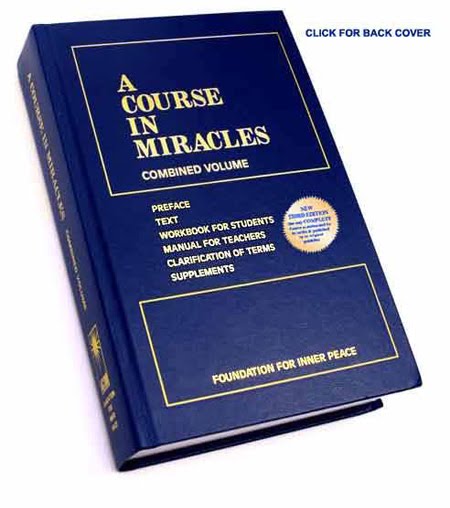You would maintain, and think it true, that you do not believe these senseless laws, nor act upon them. And when you look at what they say, they cannot be believed. Brother, you do believe them. For how else could you perceive the form they take, with content such as this? Can any form of this be tenable? Yet you believe them [for] the form they take, and do not recognize the content. It never changes. Can you paint rosy lips upon a skeleton, dress it in loveliness, pet it and pamper it, and make it live? And can you be content with an illusion that you are living? (ACIM:T-23.II.18)In the book Awakening in Love, Margot Krikhaar writes about it like this:
It was during the course of a meditation, when I encountered my own most basic self-image, that I noticed how deep our convictions go. That happened because I felt a lot of longing to get closer to God but, at the same time, bumped into the profound conviction that I was absolutely not worthy of it. I had never identified consciously with the traditional images like ‘being a miserable sinner’ or ‘having to pay for it in hell.’ But those images appeared to be amply present in my unconsciousness. In the meditation, I suddenly saw myself as a very dirty, filthy wad, the kind of thing you might find in the street and that everyone would kick or walk on. That was very shocking, to see so clearly how I saw myself in the end. And therefore, that is how I have always seen myself! That was what the ego had always told me about myself, and I had swallowed it whole. And of course such a dirty, filthy wad does not deserve to return to Heaven; it does not belong there at all. Such a wad deserves only to live on in Hell until death. We need a lot of self-forgiveness! Our false convictions about ourselves go very deep. But we need only look at all these self-images—without judgment—and ask the Holy Spirit for correction. That is the only thing needed. (Awakening in Love, Part II, Chapter 9 - unpublished manuscript, expected publication June 2012)It is alwasy interesting to see how different people deal with the Course and the seemingly Christian concepts in it and, and the ways in which we react to them. How we shield ourselves against the realization that the Christian theology is the perfect embodiment of the ego thought system, and indeed we all do believe it, regardless if we think we are atheists, Christians, Jews, or Hindu. This becomes another example of Thomas Merton's famous dictum of the journey from the head to the heart being the longest journey. Consciously, we may think that we have not bought the Christian theology, because we have left the church, were never in the church, were from another faith, or whatever, but once we start working with the Course it becomes obvious that Christian theology is the perfect model for the ego system of wanting to have our cake and eat it too - in this case wanting our individuality without the responsibility and guilt over shattering oneness, which is the fundamental premise of individuality in the first place. This deeply unconscious premise of the ego thought system predisposes us to a model in which some kind of an external savior takes the fall for the problem and saves us - he dies for our 'sin.' And what we don't get is that this thought system keeps the guilt going around, for now we secretly feel guilty that someone else took the fall for our choice to separate from Heaven and run our own show.
In my years with the Course it took me a long time to really even begin to start to get this at an experiential level, for intellectually I long since had thought that I understood that it was an absurd, not to mention cowardly, thought to have Jesus be sacrificed for our sins, and I would have thought I never believed that story. Other people may have lived with Christian beliefs, but once they really get into the Course they start somehow remembering that as little kids the story seemed pretty absurd to them, but naturally growing up as good healthy egos, they bought into it any way, until they finally stumble into the Course, and suddenly start remembering their initial disbelief of the theological explanations that their Church provided. And then the Course may suddenly seem to make a lot of sense with its very different view of this story. However, at that point we are at the beginning, not the end of an awakening process, and the real work is in learning to look at this belief system with the loving presence of Jesus as our Inner Teacher besides us and to finally learn to forgive these beliefs, which are nothing but the justifications and rationalizations of the tiny mad idea. As long as we are caught up in the paranoid schizophrenic thought system which is the ego, we fiercely defend against anything that questions our particular theology. It is a beautiful cover of protection that we simply accept a self-concept of being 'miserable sinners' and are dependent on an external savior, who - of course - never comes. Without the forgiveness process this thinking is too entrenched, and covered up in many ways, but with forgiveness the insanity of it can finally be seen for what it is, and let go.
Copyright, © 2012 Rogier F. van Vlissingen. All rights reserved.
